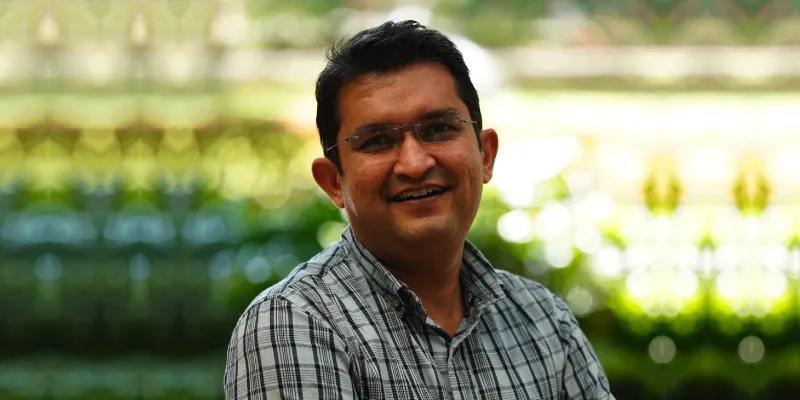Life science incubator C-CAMP launches AMR accelerator programme to encourage antimicrobial resistance innovations
C-CAMP’s 12-week long AMR accelerator programme will provide strategic inputs on scientific, clinical, IP, regulatory, and commercialisation aspects to the participating innovators.
Bengaluru-based life science incubator Centre for Cellular and Molecular Platforms (C-CAMP) launched a tailor-made accelerator programme to support early-stage Indian startups involved in developing antimicrobial resistance (AMR) innovations. The programme is for three months.

Dr Taslimarif Saiyed, C-CAMP CEO and Director had announced about the accelerator programme during the finale of the C-CAMP AMR Quest held in July
According to the incubator, AMR is the process where micro-organisms develop an ability to stop the action of antimicrobial drugs from working against them. Excessive growth of drug-resistant microorganisms or known as superbugs is considered to be a global public health threat, and can render several antimicrobial treatments ineffective.
The programme was first announced by Dr Taslimarif Saiyed, C-CAMP CEO and Director, during the finale of the C-CAMP AMR Quest held in July.
“The C-CAMP AMR Accelerator is one of the first-ever acceleration support programmes in India towards nurturing and sustaining breakthrough innovations in Antimicrobial Resistance, an emerging threat for healthcare systems across the world. As the COVID-19 pandemic has shown, a widely spreading multi-drug resistant bacteria and/or any other MDR-microbial infection will be devastating for our society. C-CAMP is delighted to sow vital seeds through programmes like AMR accelerator to diagnose, treat, and prevent such an infection from snowballing into the next pandemic,” Taslimarif Saiyed, C-CAMP CEO and Director said in a statement.
What is in store for the innovators?
According to the official statement, the accelerator programme is aimed at providing strategic inputs on scientific, clinical, IP, regulatory, and commercialisation aspects to the participating innovators.
“It will also prepare the cohort members for potentially applying for non-dilutive funding and support from CARB-X. The programme also includes plenty of networking and peer-to-peer interaction time,” it said.
The accelerator programme is being conducted in partnership with Boston University-led Combating Antibiotic-Resistant Bacteria Biopharmaceutical Accelerator (CARB-X). According to C-CAMP, this programme will be part of CARB-X’s Global Accelerator Network (GAN), a league of 10 organisations working to fight AMR. C-CAMP claims to be the only accelerator in the network which is not from the US and Europe.
It also said that the 2020 cohort will include six participants. The winners of the C-CAMP AMR Quest — Dr Shridhar Narayanan, Director and Chief Scientific Officer of Foundation for Neglected Disease Research (FNDR); Tanay Bhatt, an academician from DBT Institute for Stem Cell Science and Regenerative Medicine; Dr Dhananjay Dendukuri, CEO and Co-founder of Achira Labs; and Dr Chirag Pandya, CEO and Co-founder of Ampligene India Biotech, will be participating in the first cohort.
Apart from this, special mentions of AMR Quest, Dr Dipti Sareen, Faculty at Panjab University, and Sarath Nair, academician at SRM University will also participate in the programme.
C-CAMP’s fight against COVID-19
The COVID-19 pandemic has seen several startups and innovators go beyond business to find solutions to the global health crisis, and C-CAMP has backed several such important innovations.
The Bengaluru-based incubator had launched COVID-19 Innovations Deployment Accelerator (C-CIDA) in March to support and fast-track near deployment-ready innovations across the country to combat coronavirus.
According to C-CAMP, it received 1,100 applications within a month. About 30 innovations out of the total were selected by the incubator who are working across categories, including diagnostic kits, ventilators, remote monitoring, and other preventive technologies.
Edited by Suman Singh








